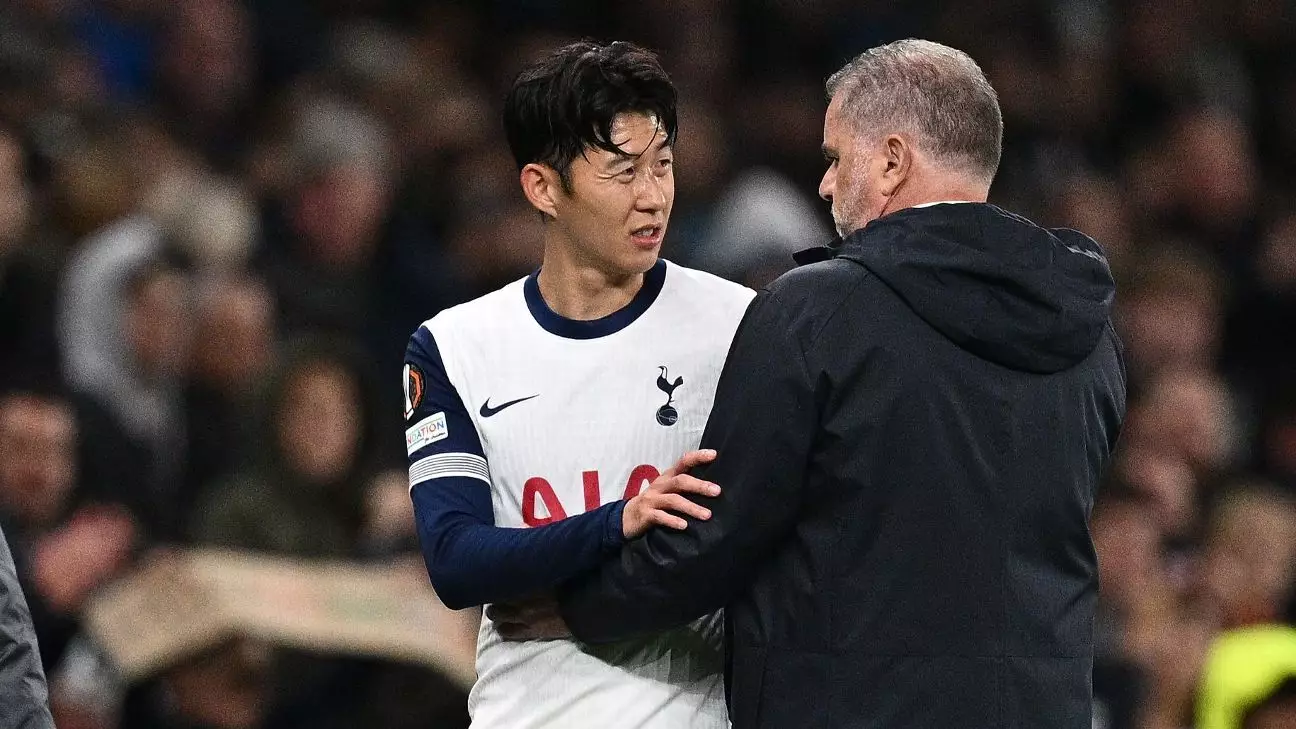In the modern landscape of professional football, managing player workload has become an urgent issue. This concern is particularly timely for Tottenham Hotspur and their star player, Son Heung-Min, who has been thrust into the spotlight with his relentless participation in matches. Spurs’ manager, Ange Postecoglou, has acknowledged that Son’s current workload is unsustainable, especially for a player of his age. The pressure on players like Son has intensified amid a congested fixture schedule, raising questions about health, performance, and long-term career sustainability.
Son Heung-Min’s Unwavering Commitment
Son Heung-Min’s passion for the game is evident in his commitment to both club and country. Since joining Spurs in 2015, he has made 415 appearances and injected both skill and charisma into the squad. However, at 32 years old, Son’s continuous appearances have become a matter of concern, particularly after he limped off the pitch during a Europa League match due to “fatigue in his hamstring.” The manager’s acknowledgment of his overflowing workload exposes a delicate balancing act between a player’s desire to compete and the physical toll of an unforgiving season.
Postecoglou has openly admitted that Son has played more minutes than initially expected, primarily due to unexpected injuries to other squad members, such as Richarlison and Dominic Solanke. The manager’s candid analysis illustrates an understanding of the unpredictable nature of football, where injuries can shift the workload drastically. Postecoglou initially planned to alleviate Son’s participation in matches, but the circumstances have dictated otherwise. He emphasizes the importance of being proactive in preserving players’ health rather than reactive once injuries occur.
The manager’s comments also touch on a broader issue: the current football calendar burdens players with more games than ever before. The constant juggling of domestic cups, international fixtures, and league matches raises an alarming inquiry into how teams can protect player welfare while still striving for success. “Sometimes, it’s not the amount of injuries but the type of injuries you experience,” Postecoglou noted, shedding light on the multifaceted nature of fatigue and its impact on performance.
Son himself has voiced concerns about the increasing number of games elite footballers face, citing it as “very hard” and underlining the “massive” risk of injuries. This mindset puts the onus on the player—not just the club—to self-regulate their playing time, leading to a certain tension between passion and prudence. While many fans admire Son for wanting to take the pitch every weekend, the reality of prolonged physical engagement raises critical questions about player longevity and mental well-being.
Postecoglou recognizes Son’s competitive spirit but also acknowledges that a nuanced dialogue about game time is necessary. He indicated that rather than forcing the issue over “a cup of tea,” he would rather make the tough decision to rest his captain, trusting his judgment and hoping that disappointment does not undermine Son’s thirst for competition.
International Duty vs. Club Responsibilities
Tension also exists between club commitments and international duty. Son is a key player for South Korea’s national team, making his availability for international matches non-negotiable for him. Postecoglou’s respectful stance on this matter emphasizes the importance of a player’s international career. He understands that opportunities come and go, and a player should not have to sacrifice his heritage and pride for club obligations, despite the impact that might have on club management.
The manager’s remarks highlight a significant point: the short life span of a professional athlete. Once they retire, they should look back on a fulfilling career filled with unforgettable moments representing their country. The duality of club and country can put players in a delicate predicament, and thus decisions must lie with the players, as they understand their physical and emotional boundaries best.
As the season progresses, the challenge of maintaining a balanced player workload will require a concerted effort from both management and players alike. Postecoglou’s awareness and willingness to address Son’s excessive match participation are commendable steps towards a more sustainable future for player health. A nuanced approach will be essential in tackling fixture congestion and ensuring that world-class performers like Son continue to shine on the pitch without compromising their fitness.
Football, at its core, is about moments of brilliance, shared pleasures, and cherished memories. Therefore, managing fatigue is not just about physicality but also about emotional integrity, a balance that reinforces the very essence of the beautiful game.

Leave a Reply